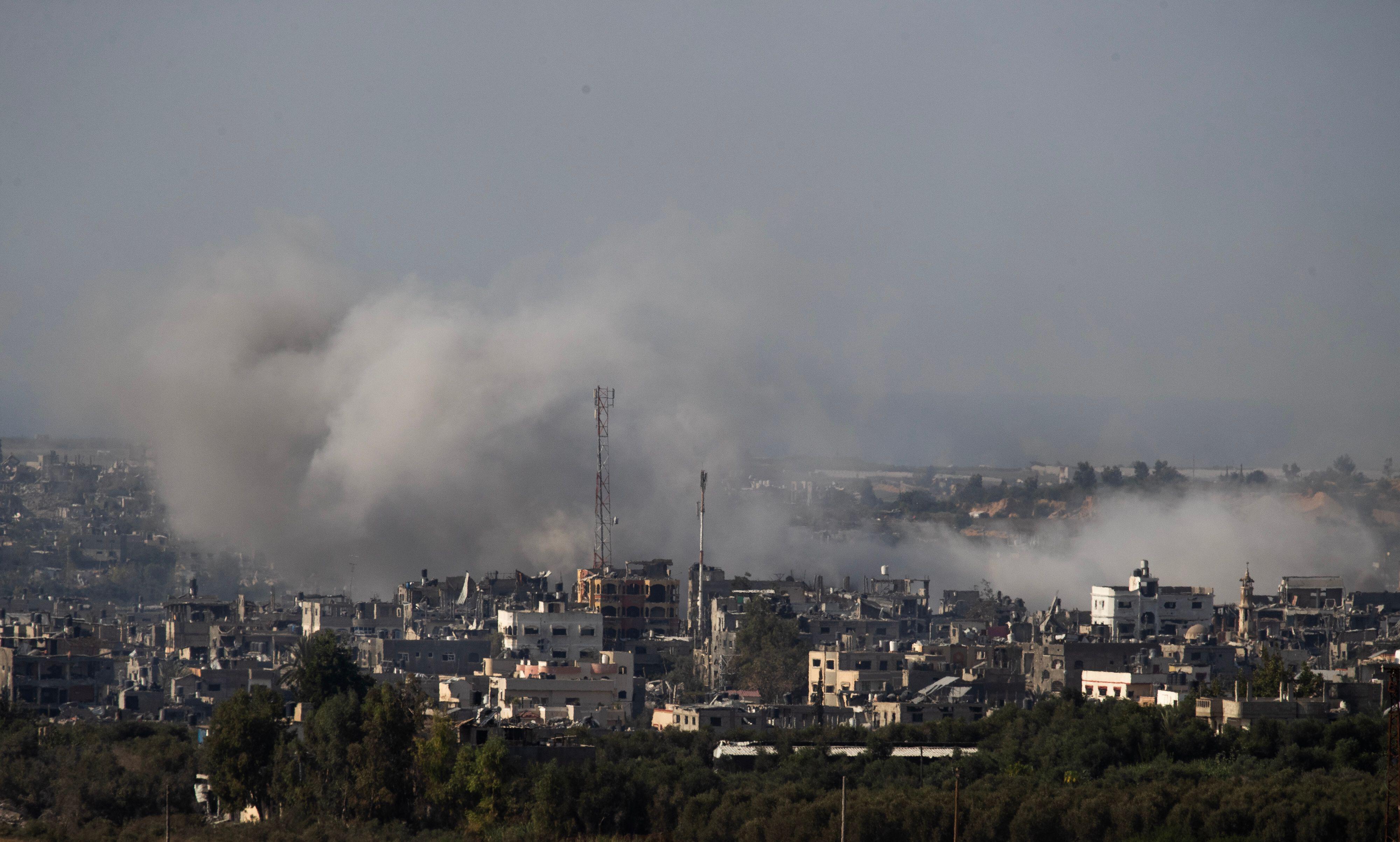The people of Gaza are facing one of the worst humanitarian crises in living memory. At the time of writing we have seen over 10,000 Palestinians killed, over 1.5 million displaced and airstrikes continue to destroy homes, schools, and healthcare facilities.
One of Christian Aid’s medical partners in Gaza explained: “We are worried that hospitals will stop operating because of a shortage of fuel. We don’t know if hospitals have the fuel to keep going for days or hours.”
The same partner goes on to urge the international community to “pressure Israel to allow water, fuel and medication to enter Gaza and to allow medical teams to enter and to keep them protected so they can treat injured people.”
Despite this, Israel’s Prime Minister Benjamin Netanyahu has rejected calls for a ceasefire in Gaza, saying “this is a time for war.” Was it not Albert Einstein who is reported to have once said “insanity is making the same mistakes and expecting different results?” What we are seeing in this war between Israel and Hamas and Israel is just that.


It has become increasingly clear that the political leadership, both Israeli and Palestinian, are incapable of breaking this cycle of violence. But it is also increasingly clear that the international community is repeating the same mistakes too.
That is why Christian Aid, alongside over 20 church leaders and Christian organisations, is calling for an immediate ceasefire. We have also called for the immediate and unconditional release of all Israeli hostages, and for the International Criminal Court to carry out an independent investigation into all alleged war crimes to ensure accountability too.
But while so many faith leaders and so much of civil society has been able to coalesce around these calls for a ceasefire, it is to our shock that it is a step too far for both the Prime Minister and the Leader of the Opposition.
As defined by the UN, a ceasefire is a suspension that usually allows parties to engage in dialogue, including the possibility of reaching a permanent political settlement. A humanitarian pause, the case made by the leaders of the UK’s two largest parties, is defined only as a short break of hostilities negotiated purely to enable aid to get through to affected people.
The difference is night and day.
A humanitarian pause falls far short of what’s needed to aid civilians in Gaza, and lay the groundwork for talks on a durable and just peace. That is the certainty a ceasefire can bring, and it is the moral responsibility of international leaders to press for it.
Christian Aid’s partners have been able to conduct the most extraordinary community led response in the most extreme conditions. They are providing mobile medical and psychological care, cash transfers to people displaced in Khan Younis, and supporting the small Christian community sheltering in Saint Porphyrius church.
But many of our partners are displaced themselves, their offices and equipment damaged by airstrikes, and the conditions limiting their ability to move and provide support to the people most in need. And don’t forget, trucks with aid are only arriving in just double digits a day compared to an average of 500 truckloads every working day before this increase in hostilities.
That is why our partners have been clear with us. To respond at scale, they need unfettered humanitarian access with water and electricity reconnected, not a sticking-plaster solution. Only a full ceasefire will enable our partners and other humanitarian actors to deliver aid safely and effectively.
So, the political leadership of the UK and the political leader of the Israeli and Palestinian people face a similar challenge. Will they continue to make the same mistakes and expect different results, or will they finally step down a new path?
It is time we acknowledged the collective failure of the international community to effectively engage with any meaningful peace process and commit to work ceaselessly from now on to address the root causes of the violence. Ultimately, the cycle of violence will not end, and innocent people will continue to pay the price, until Palestinians and Israelis are treated as equals and the occupation of Gaza, and the West Bank is ended.
Politics.co.uk is the UK’s leading digital-only political website, providing comprehensive coverage of UK politics. Subscribe to our daily newsletter here.

